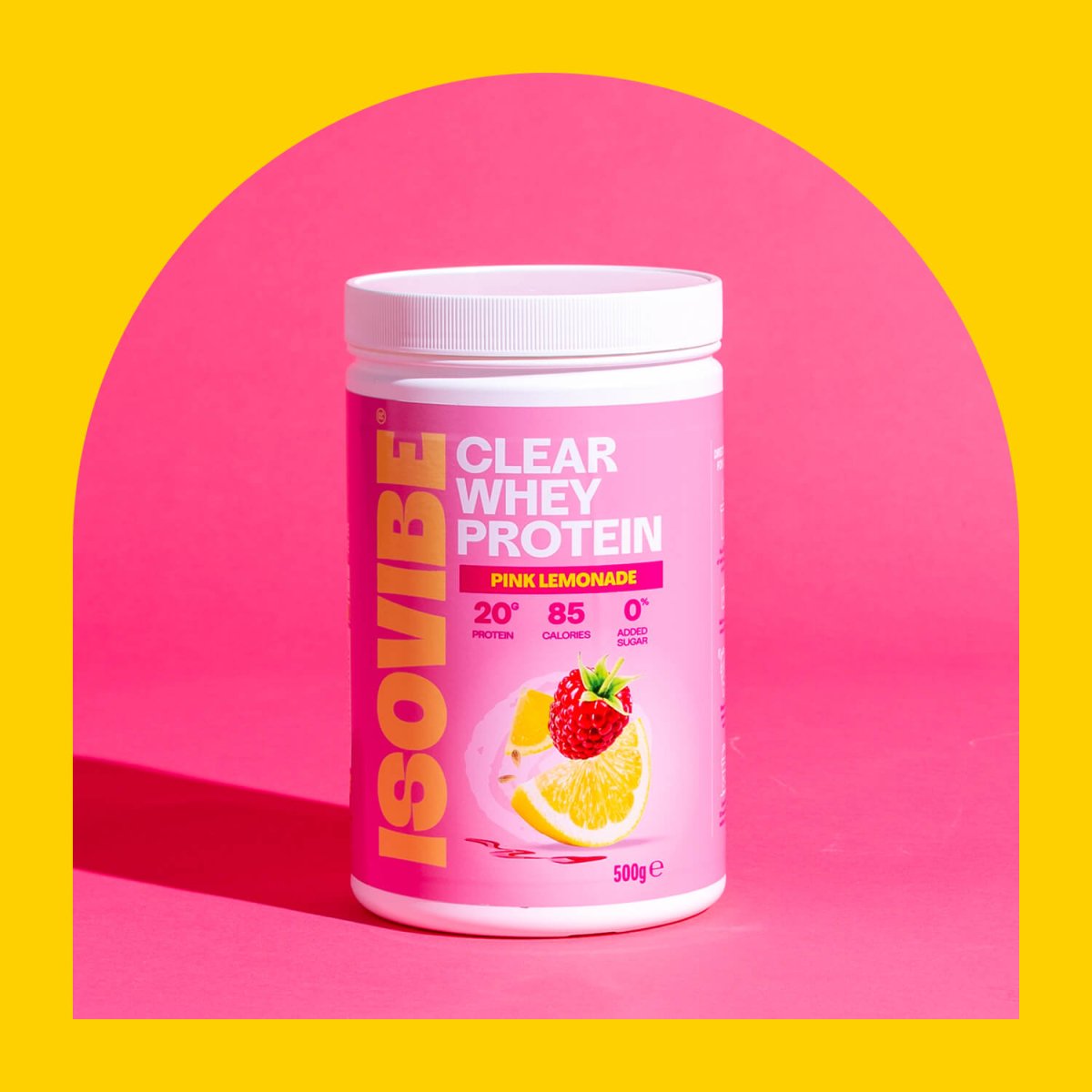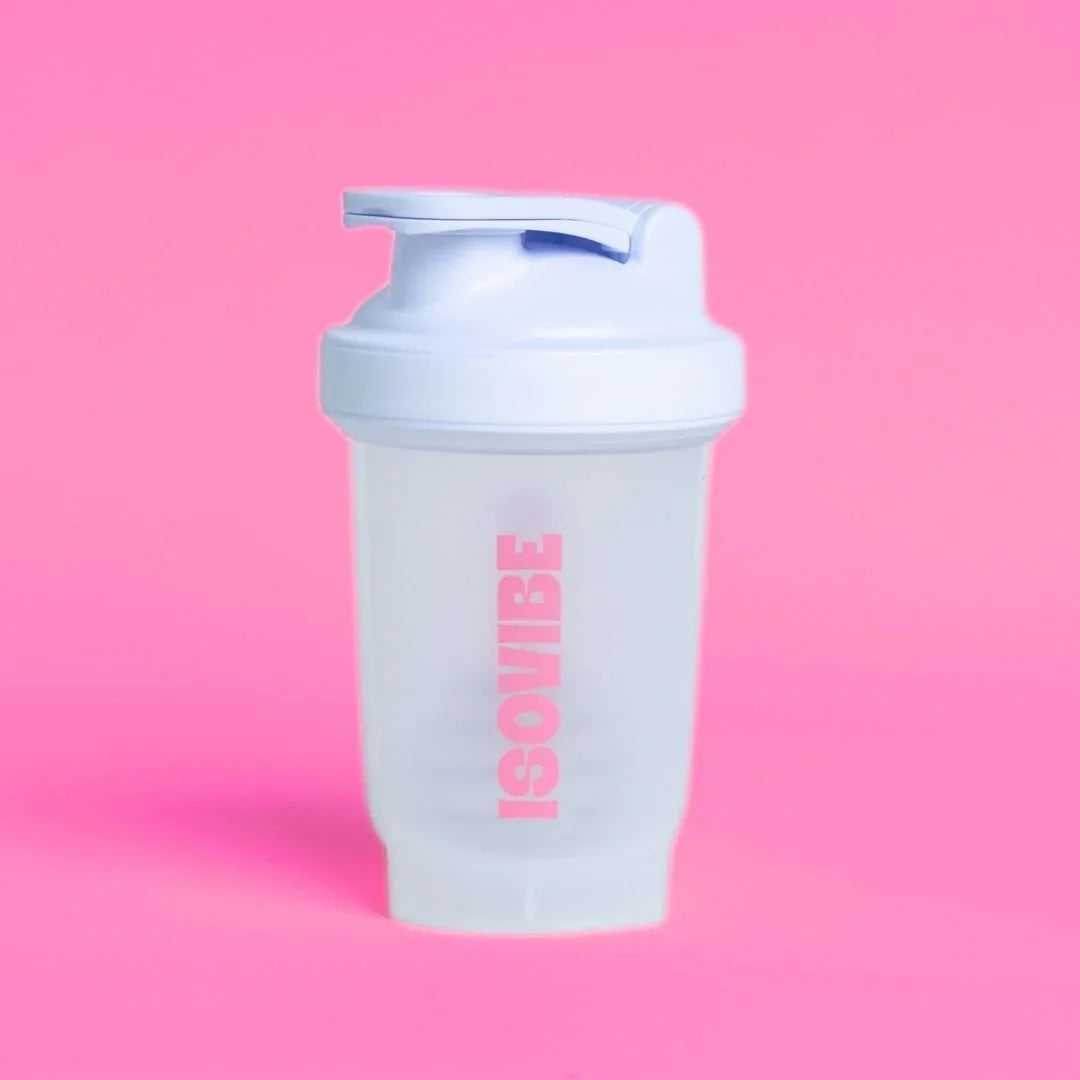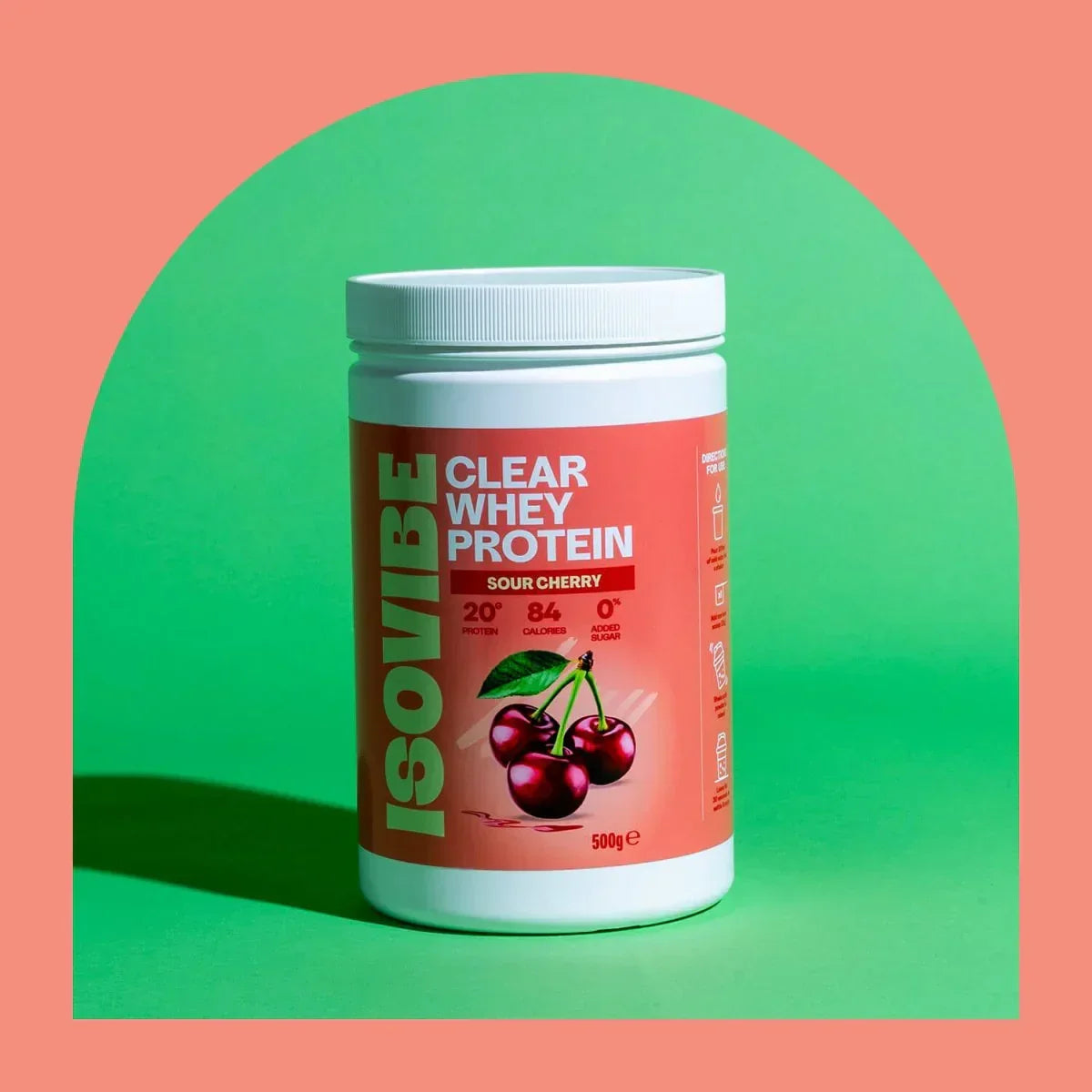Protein Myths Debunked: Separating Fact from Fiction 💪
A fitness influencer on TikTok swears you need a protein shake within 30 seconds of finishing your workout. Another says protein will “wreck your kidneys.” Your bestie worries you’ll “get bulky,” while your gym mate insists your body can only use 30g at a time.
Confused yet? Yeah, you're not alone.
Let’s clear up the chaos. Here’s what actual science says about protein - and why most women could seriously benefit from a little more of it, not less.
How Much Protein Do You Actually Need?
The UK’s official recommendation is around 45g of protein per day for the average woman¹ - basically the bare minimum to prevent deficiency if you never move. But if you want to feel strong, recover faster, or protect muscle as you age, that number’s just not it.
For most active women, research suggests:
-
Generally active: 1.2-1.6g per kg of body weight
-
Managing your weight: 1.6-2.0g per kg
-
Going through menopause: 1.0-1.5g per kg to help prevent muscle loss²
So, if you weigh 65kg (~10 stone) and train regularly, that’s about 78–104g per day. Way more than 45g, right?
👉 Learn more about women’s protein needs and how they change through different life stages.
Myth 1: “Protein Will Make Me Bulky”
Let’s stop this myth in its tracks.
Building noticeable muscle takes serious effort - we’re talking heavy lifting, a calorie surplus, and high testosterone³. Most women simply don’t have the hormonal setup for “accidental bulk.”
What protein does do is help you build lean muscle - aka the stuff that tones your arms, tightens your core, and boosts your metabolism. More lean muscle = burning more calories even when you’re bingeing Netflix. So yeah, protein’s basically your glow-up fuel.
Myth 2: “High Protein Hurts Your Kidneys or Bones”
Totally understandable concern - but for healthy people, the science says nope.
Kidneys: Studies show protein intakes up to 2.2g per kg (and sometimes more) are safe⁴. Your kidneys just work a little harder, which is a normal response - not a red flag.
Bones: That old “protein weakens bones” thing? Outdated. Turns out higher protein intake is actually linked to stronger bones and a lower risk of fractures⁵⁻⁶.
Just make sure you’re also getting enough calcium. And if you do have a diagnosed kidney condition, check with your GP before upping your intake.
Myth 3: “Your Body Can Only Use 30g Per Meal”
This one gets misquoted a lot.
Your body can absorb pretty much all the protein you eat - even 80g at once. What people mean by the “30g rule” is that around 25-40g per meal is what best triggers muscle repair⁷. But that doesn’t mean extra protein vanishes into thin air. It just gets used for other things such as immune function, hormones, tissue repair, energy… you name it.
So don’t stress over exact numbers. Just aim for 20-40g at each main meal and you’re golden.
Myth 4: “You Have to Slam a Shake Right After Training”
Ah, the “anabolic window” myth - brought to you by decades of gym bro lore.
Yes, protein after your workout helps recovery, but your muscles stay ready to absorb protein for up to 24 hours after training⁸. The real focus should be your total daily intake, not the 30-minute panic window.
If you prefer to eat breakfast an hour after your morning lift, that’s totally fine. Immediate shakes only really matter if you’ve trained fasted.
👉 Get the full breakdown on protein timing and how to make it work for your routine.
What About Weight Management?
Spoiler: Protein’s not the enemy — it’s the MVP when it comes to weight goals.
Here’s why:
-
It keeps you full longer. Protein is super satisfying, helping you snack less and stay on track.
-
It boosts your metabolism. Your body burns more calories digesting protein than carbs or fat.
-
It protects your muscles. When you’re in a calorie deficit, protein helps preserve lean tissue - meaning you lose fat, not strength⁹.
Weight gain only happens when you eat more calories than you burn. Protein itself? Not the culprit.
👉 Learn how protein for weight loss actually works (and why it makes dieting way easier).
Can You Get Enough Protein on a Plant-Based Diet?
Totally. 🌱
Every plant food has all nine essential amino acids - some just in smaller amounts¹⁰. Eat a variety of sources (lentils, beans, tofu, quinoa, nuts, seeds) and you’re sorted. Your body mixes and matches amino acids throughout the day to build what it needs.
Easy Ways to Boost Your Protein
Knowing you should get more protein is one thing. Actually doing it? Whole other story.
Here’s what ~25g looks like:
Chicken breast (120g cooked)
Salmon fillet (140g)
Three eggs
Baked beans (400g tin)
Cottage cheese (300g pot)
One scoop of whey isolate
Simple swaps:
-
Go for Greek yoghurt instead of cereal in the morning
-
Add nuts to your afternoon snack
-
Make sure each meal includes a palm-sized protein source
-
Keep boiled eggs or edamame handy for quick snacks
What About Protein Shakes?
Think of them as a tool, not a must.
They’re great post-workout, for busy mornings, or when you’re not hitting your target with food alone.
If milky shakes aren’t your vibe, try clear whey protein - it’s light, fruity, and hydrating (more “juice” than “shake”). It’s also packed with leucine - the amino acid that drives muscle building - and low in fat, sugar, and lactose.
The Bottom Line
Most of the scary protein myths? 🚫 Not true.
For most women, more protein = better health, stronger muscles, easier weight management, and better aging. The “official minimum” is just that - a minimum.
So forget the fear. Fuel your body, lift heavy, and eat the protein your body actually deserves.
References
-
British Nutrition Foundation. (2024). Protein. https://www.nutrition.org.uk/nutritional-information/protein/
-
British Dietetic Association. (2021). Sport & Exercise Nutrition. https://www.bda.uk.com/resource/sport-exercise-nutrition.html
-
ISSA. (2024). Women and Protein – An Essential Guide. https://www.issaonline.com/blog/post/women-and-protein-an-essential-guide
-
Devries, M.C., et al. (2018). Changes in Kidney Function Do Not Differ Between Healthy Adults Consuming Higher- Compared with Lower- or Normal-Protein Diets: A Systematic Review and Meta-Analysis. Journal of Nutrition, 148(11), 1760-1775. https://doi.org/10.1093/jn/nxy197
-
Shams-White, M.M., et al. (2017). Dietary Protein and Bone Health: A Systematic Review and Meta-analysis from the National Osteoporosis Foundation. Journal of the American College of Nutrition, 36(3), 201-212. https://doi.org/10.1080/07315724.2017.1322924
-
Wallace, T.C., et al. (2017). Dietary Protein and Bone Health: A Systematic Review and Meta-analysis. The American Journal of Clinical Nutrition, 105(6), 1528-1543. https://doi.org/10.3945/ajcn.116.145110
-
Schoenfeld, B.J., & Aragon, A.A. (2018). How much protein can the body use in a single meal for muscle-building? Implications for daily protein distribution. Journal of the International Society of Sports Nutrition, 15(10). https://doi.org/10.1186/s12970-018-0215-1
-
Schoenfeld, B.J., et al. (2013). The effect of protein timing on muscle strength and hypertrophy: a meta-analysis. Journal of the International Society of Sports Nutrition, 10(53). https://doi.org/10.1186/1550-2783-10-53
-
Astrup, A., et al. (2021). Dietary Protein and Weight Management. Nutrients, 13(9), 3193. https://doi.org/10.3390/nu13093193
-
Mariotti, F., & Gardner, C.D. (2019). Dietary Protein and Amino Acids in Vegetarian Diets—A Review. Nutrients, 11(11), 2661. https://doi.org/10.3390/nu11112661




